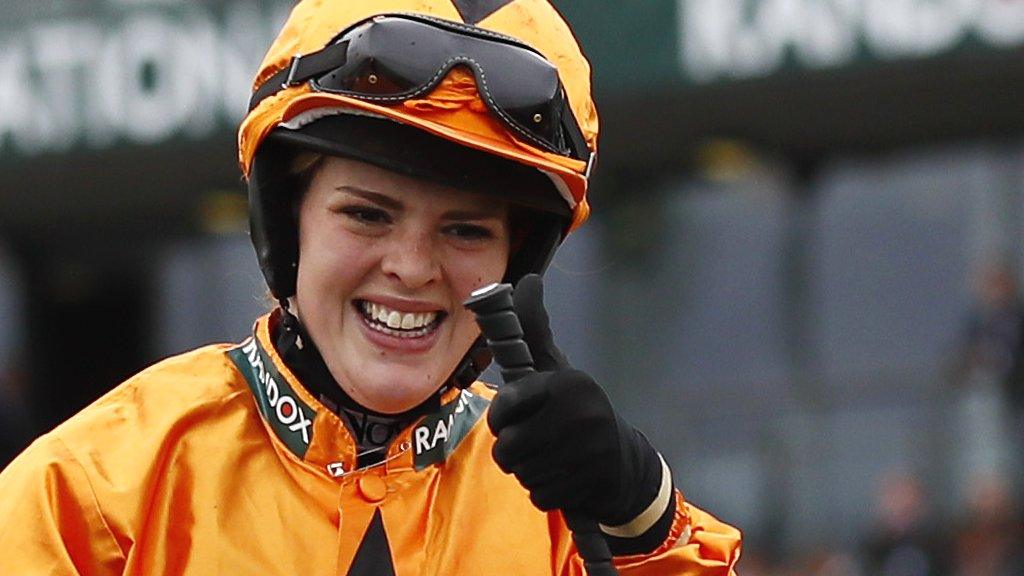Grand National 2017: Aintree boss pleased with course safety
- Published
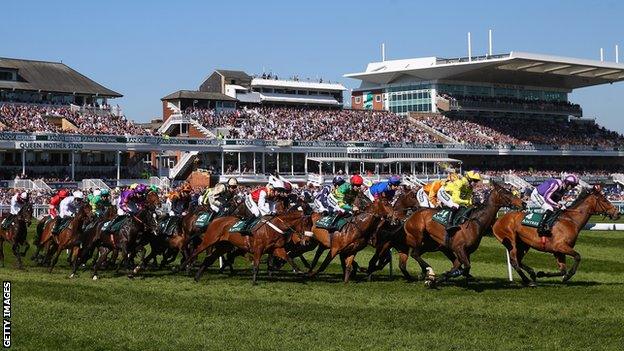
The 40 runners faced 30 fences over four and a quarter miles
Organisers say they will not be complacent over welfare after all Grand National runners returned safely for the fifth consecutive year.
There were no serious injuries to horses from 317 runners in 21 races at the three-day meeting.
Aintree boss John Baker said it was "very positive" for the course and horse racing.
"It's really good news, but we are never going to be complacent," Baker told BBC Sport.
The National, which sees a maximum field of 40 runners tackle 30 fences over four and a quarter miles, attracted criticism after two horses died in both the 2011 and 2012 editions.
New softer plastic core fence structures were introduced in 2013 as part of a package of measures costing £1.5m and the race's distance was reduced.
"The changes to the course have made a difference, but you can't ever fully remove the risk. They remain challenging, unique fences to jump," said Baker.
"It's the 'People's Race' and the signs are positive, although we will not get carried away.
"We want to see how these changes bed in over a long period. Five years is a relatively short time in the history of a race which goes back 170 years."
'Winning Grand National is an unbelievable feeling'
While there have been no fatalities in the Grand National since 2012, there have been six in the four other races staged each year over the track.
The 14-1 shot One For Arthur won Saturday's race, which took place in warm sunshine and a temperature of about 20C.
Before entering the winner's enclosure, the first four horses home were dismounted on the course and taken to a wash-down area to cool off.
Two false starts had delayed the race and 31 of the 40 jockeys, including winner Derek Fox, were referred to the British Horseracing Authority for approaching the starting tape before the flag was raised.
However, Baker said jockeys had generally taken on board advice about safety.
"Jockeys have been sensible and there have been more horses pulled up when their chances have gone in recent years," he said.
- Published8 April 2017
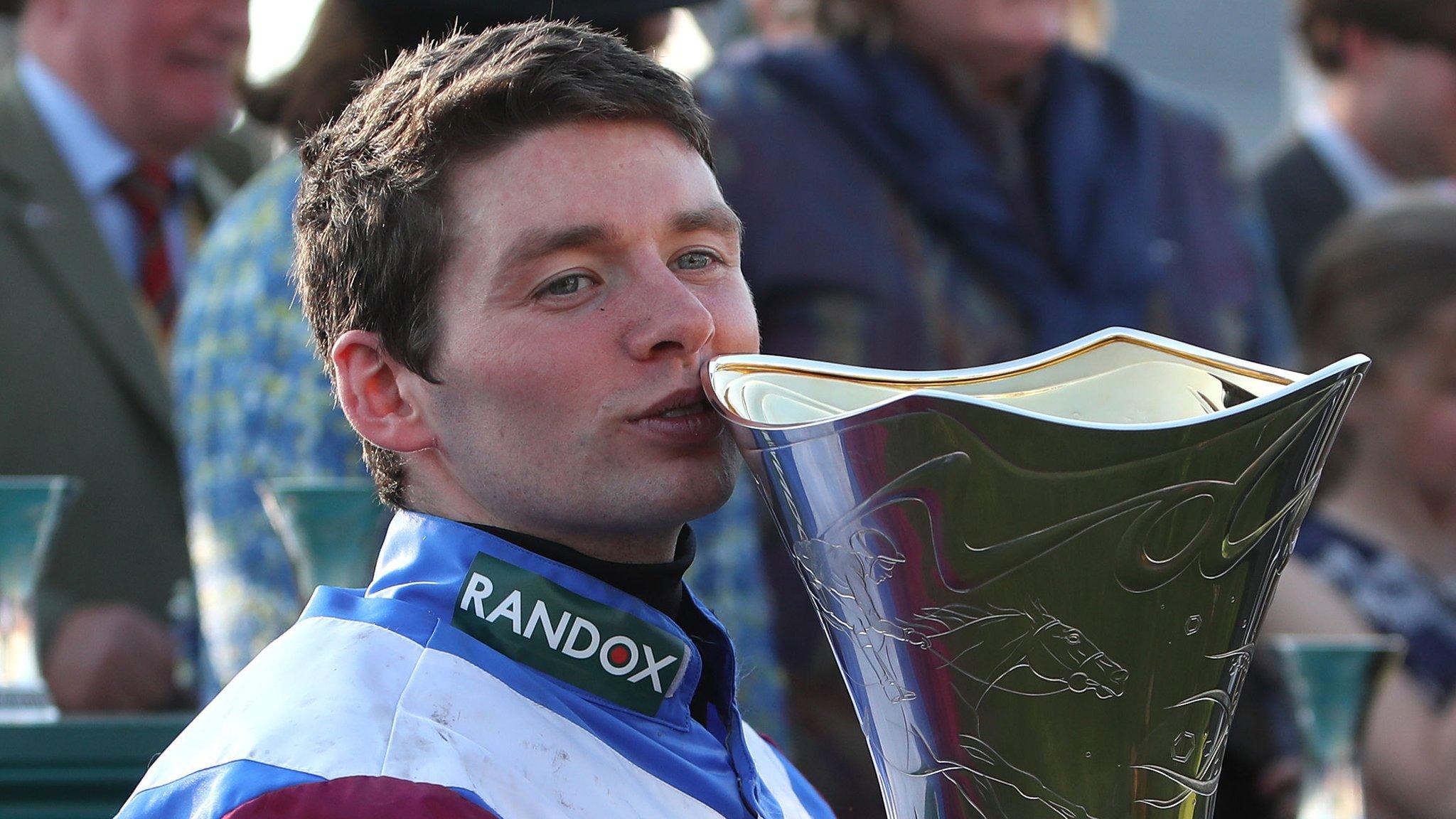
- Published8 April 2017
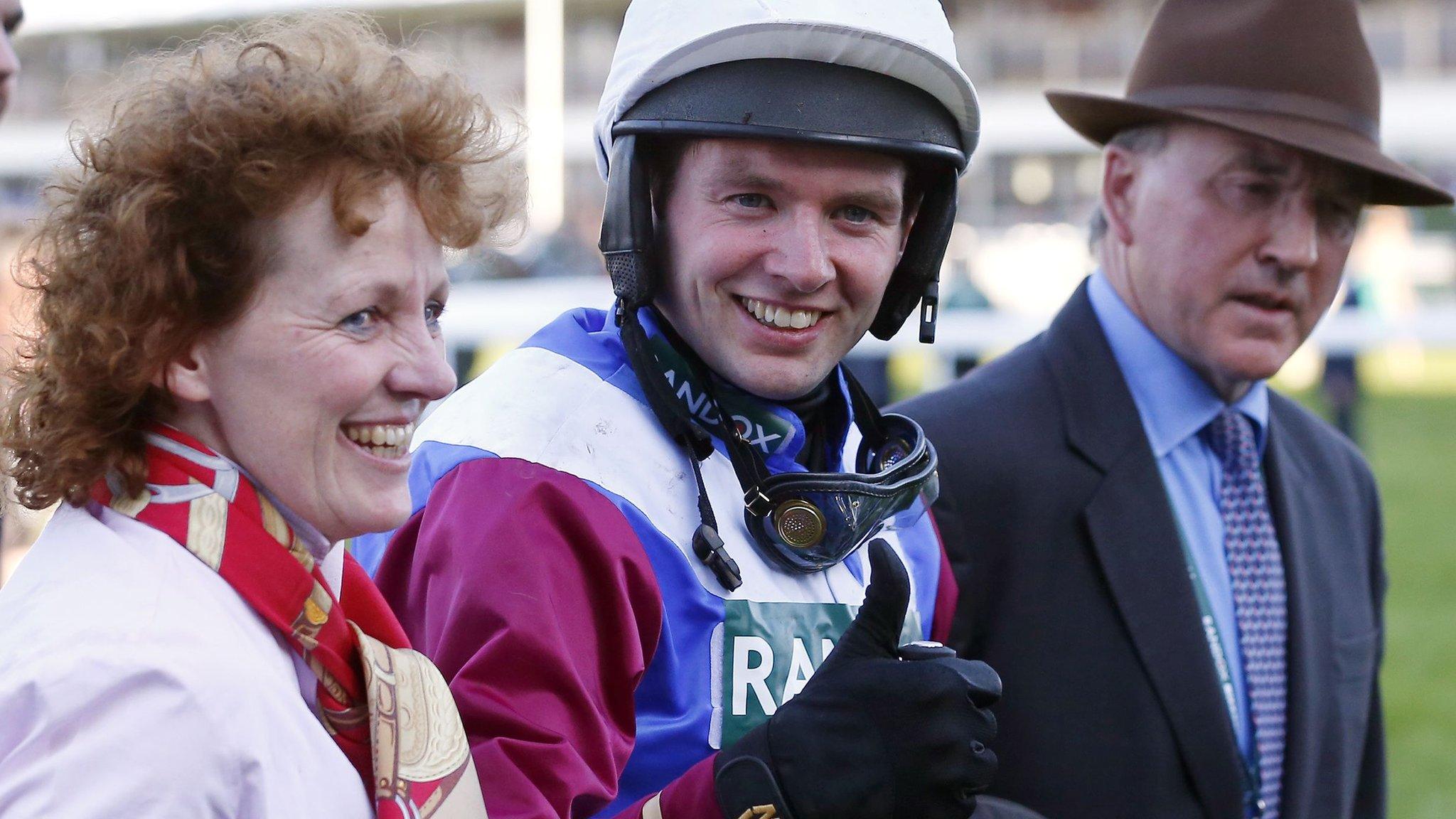
- Published8 April 2017
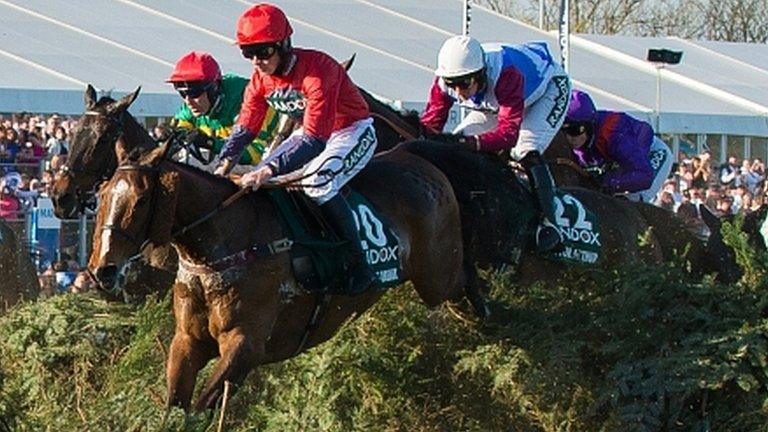
- Published3 April 2017
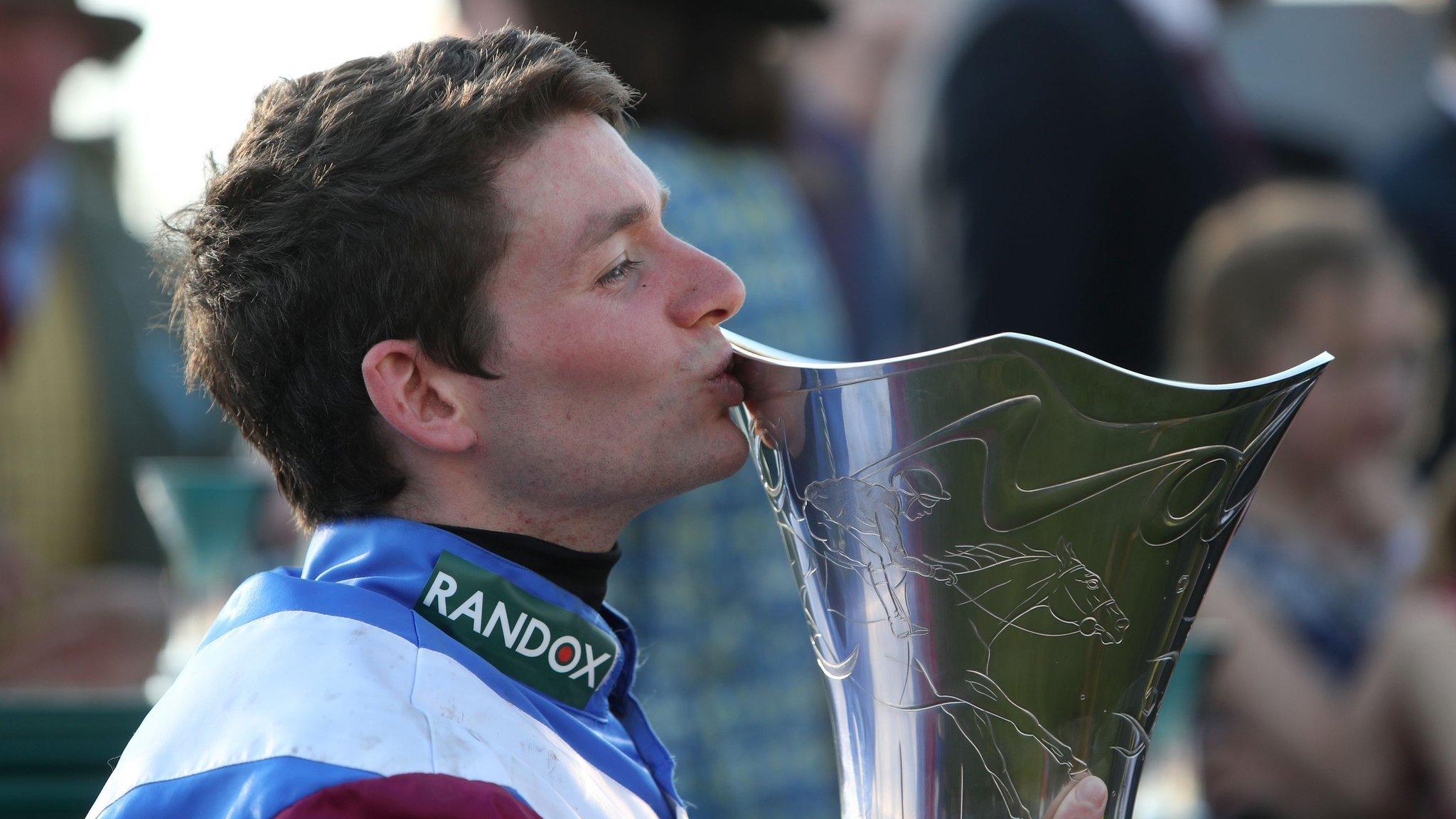
- Attribution
- Published7 April 2017
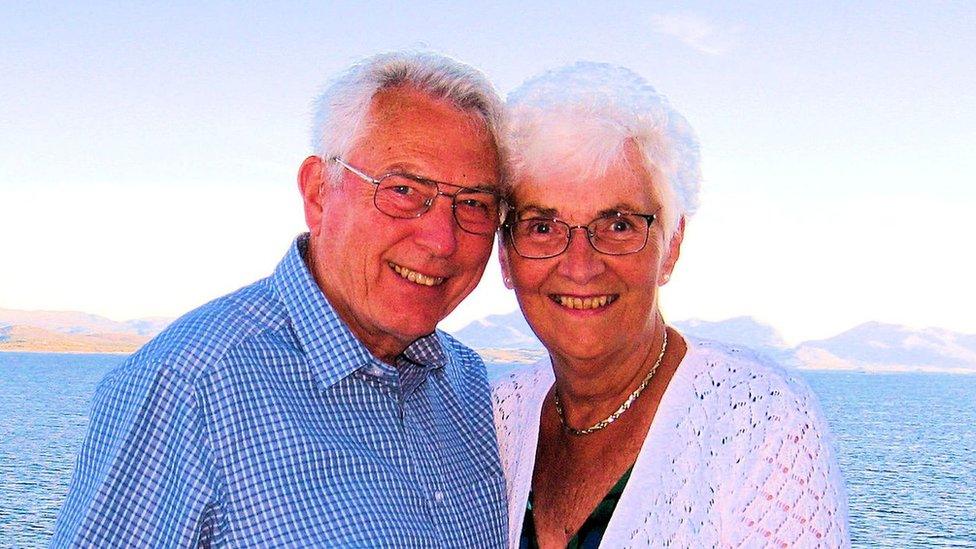
- Published7 April 2017
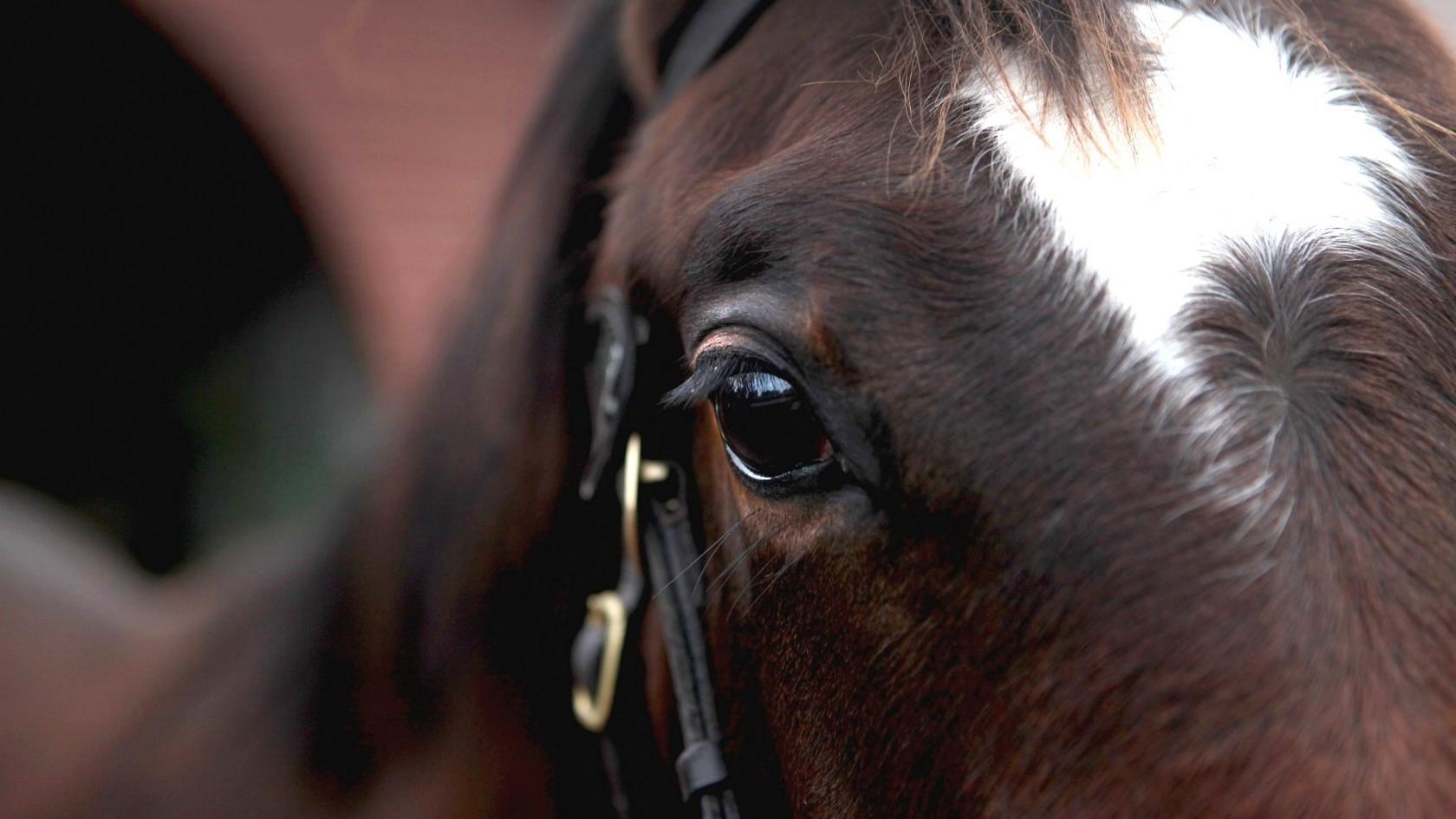
- Published6 April 2017
